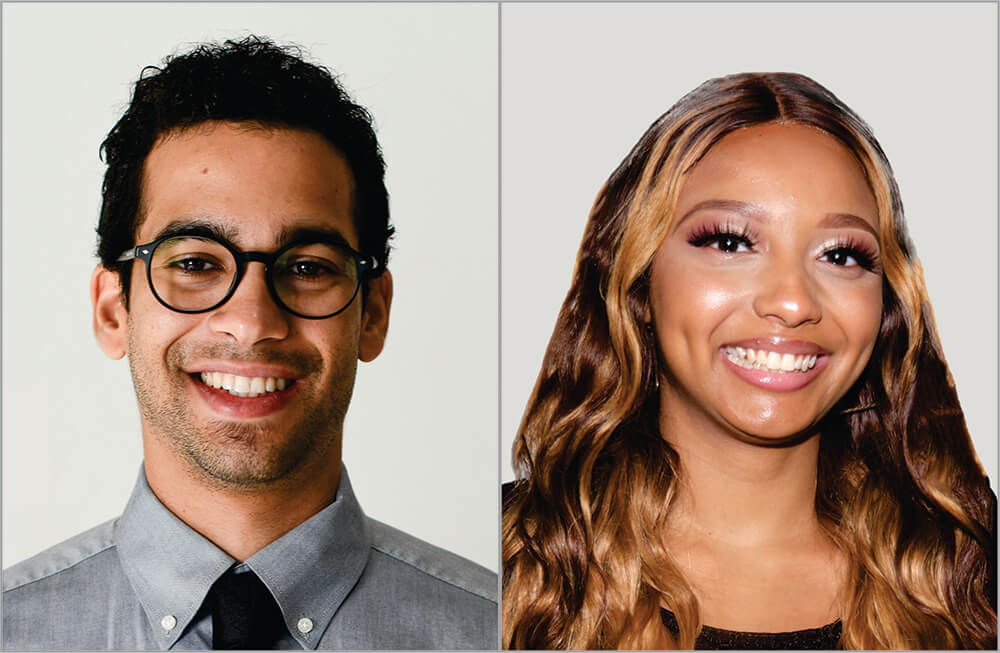To Diversify the Physician Workforce NYS Allocates $4.6M To Med Schools
Touro College of Osteopathic Medicine Harlem Wins Funding for Partial Scholarships For Minority Students in an Effort to Remove Barriers for Underrepresented Minorities Pursuing Medicine

Until last summer, Touro College of Osteopathic Medicine (TouroCOM) student Giovanni Pacheco was working as a phlebotomist at a community health center in East Harlem, aspiring to become a physician. His motivation to pursue medicine came from caring for his grandmother, whom he brought to the U.S. from Puerto Rico for medical care for Alzheimer’s.
Pacheco had taken the Medical College Admissions Test (MCAT) multiple times but had yet to make his target score, which would have made him a more competitive applicant for the school’s Doctor of Osteopathic Medicine (DO) program.
Determined to achieve his dream, he opted to enroll in TouroCOM’s Master of Science in Interdisciplinary Studies in Biological and Physical Sciences program, which is preparing him for the rigors of medical school. If he achieves a 3.45 GPA and passes a comprehensive exam, he can matriculate directly into the DO program.
“I plan to get a 4.0 and go straight in,” he says.
New Funding from New York State
Pacheco is one of ten underrepresented minority students (URM) in TouroCOM’s master’s program who are benefiting from partial tuition scholarships awarded recently as a result of $4.6 million in funding from New York State to its 17 medical schools. The goal of the funding is to improve access to care and eliminate healthcare disparities by diversifying the physician workforce. The funding is being managed by a consortium of medical schools, the Associated Medical Schools of New York (AMSNY).
“I would like to thank AMSNY and the diversity pipeline for supporting our programs to increase the number of underrepresented physicians in the Harlem community. This has been our commitment for many years, and this will help us continue to meet, or exceed, our goals,” said Dr. Kenneth J. Steier, executive dean of TouroCOM.
According to Governor Kathy Hochul’s office, more than 30 percent of the state's population is Black or Hispanic, yet only 12 percent of physicians represent those demographics. “Research has shown that patients treated by doctors from shared backgrounds have better health outcomes, which makes diversifying the state's physician workforce imperative to addressing health disparities,” said the Governor in a statement.
In addition to tuition, TouroCOM’s award of $100,000 is also paying for student access to a financial planner for one-on-one counseling, and for a rigorous summer anatomy course at TouroCOM that prepares graduate students to matriculate into medical school. M.S. graduates with MCAT scores below 500 (and not in medical school) are also invited to attend a Kaplan MCAT prep course.
“Debt, lack of mentorship and inadequate academic preparation for medical school are some of the barriers preventing URM students from successfully matriculating,” said TouroCOM professor Dr. Kamilah Ali, who led the initiative to obtain the funding for Touro.
Helping the Underserved
Dr. Ali noted that the concept of health equity has been around for decades and is central to TouroCOM’s mission of increasing the number of URM primary care physicians working in underserved communities.
“URM physicians are more likely to work in underserved communities and provide more equitable care,” said Ali. “Training at a diverse medical school diversifies the workforce. This gives way to more culturally competent care, which allows for different viewpoints and enhances health outcomes. This is the case, especially in historically marginalized communities.”
Takera Purdie, another M.S. student and scholarship recipient, knew she wanted to be a doctor after growing up in the underserved community of Wyandanch, Long Island. Her ambition was solidified while an undergraduate at Stony Brook University, where she volunteered for a medical mission to Panama through Global Medical Brigades. She traveled to poor areas and towns and helped the medical professionals do intake interviews, run dental stations, and educate the communities about public health issues like disease prevention. She gave a talk on sexual health.
“I realized medicine can be used no matter where you go,” she said. “I’d love to do orthopedics and travel and do what I did (in Panama) a few months out of the year. Travel to areas that need those services.”

